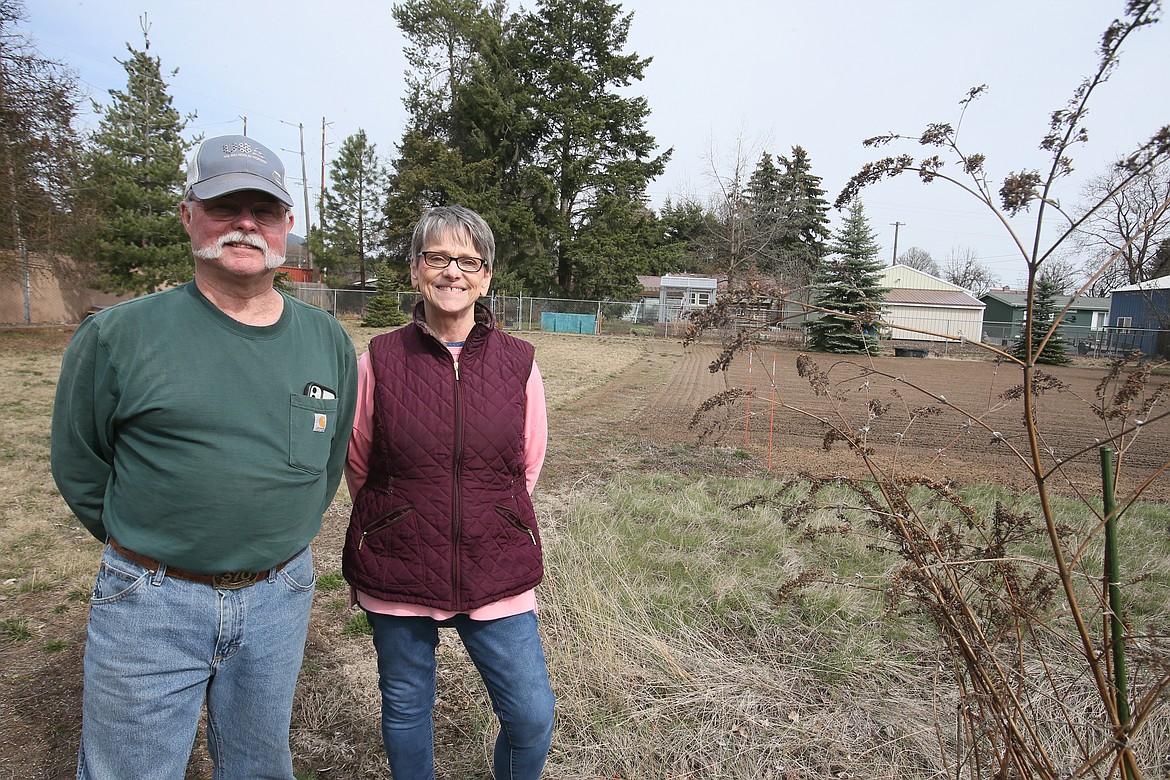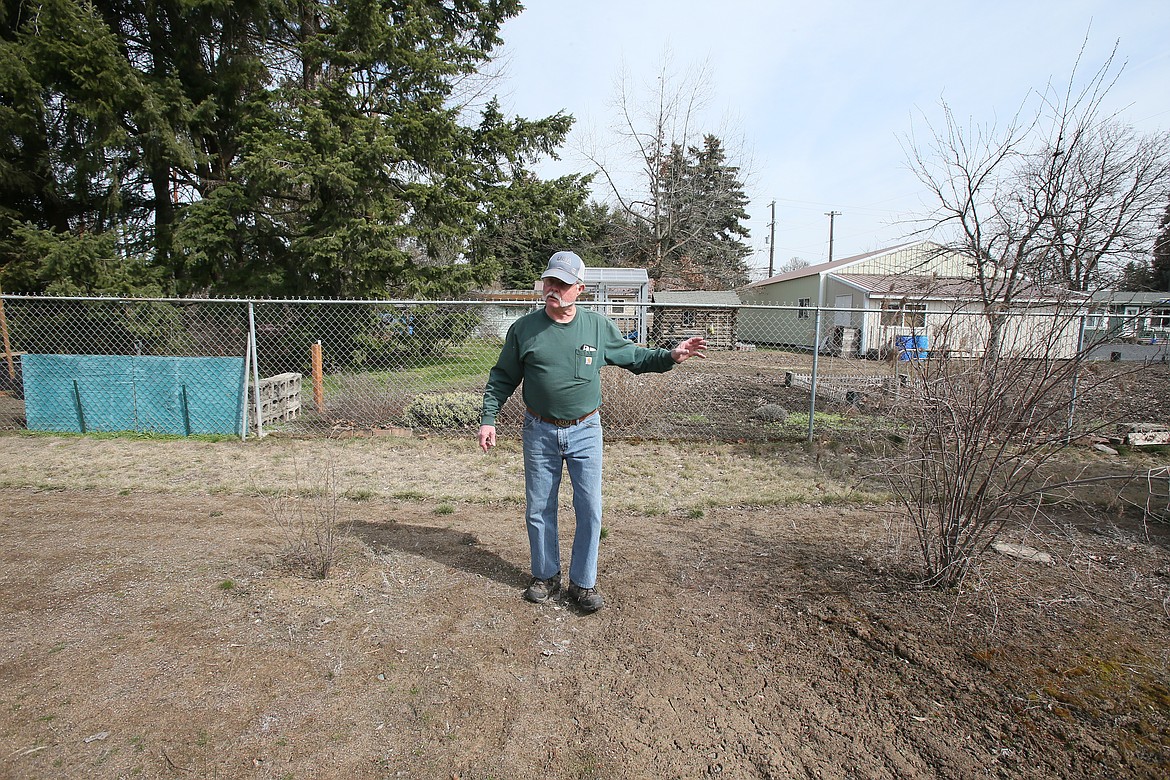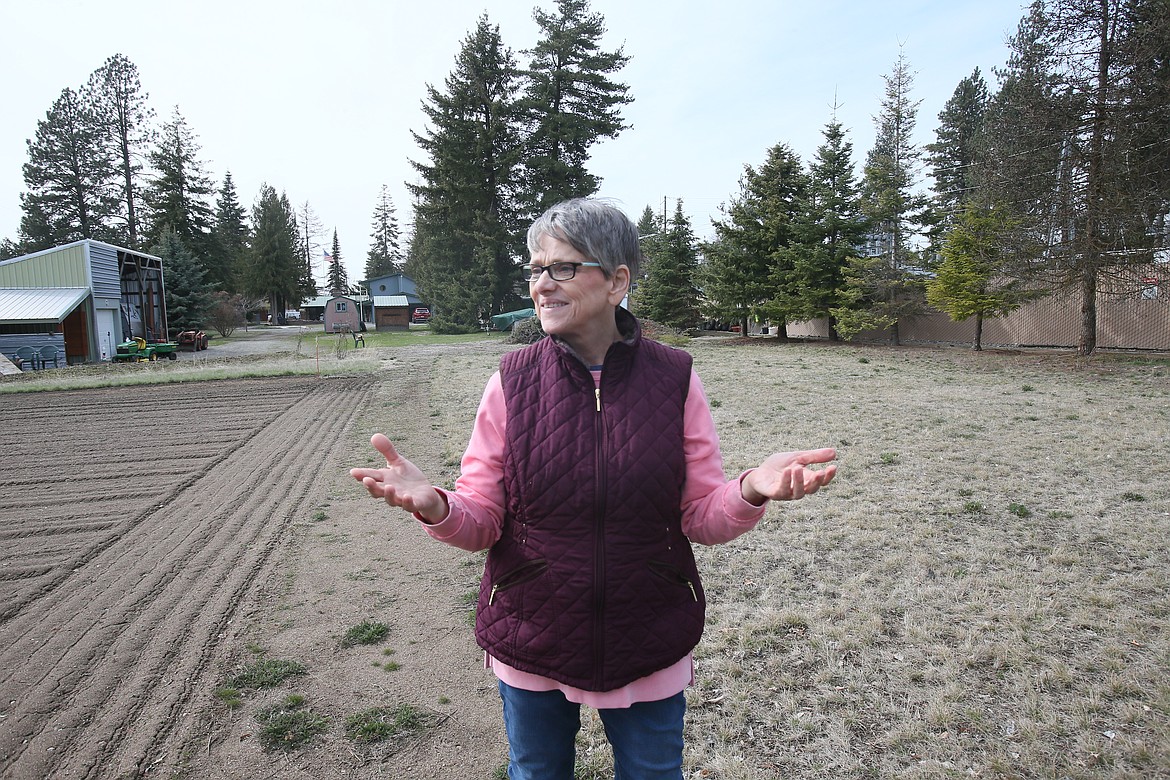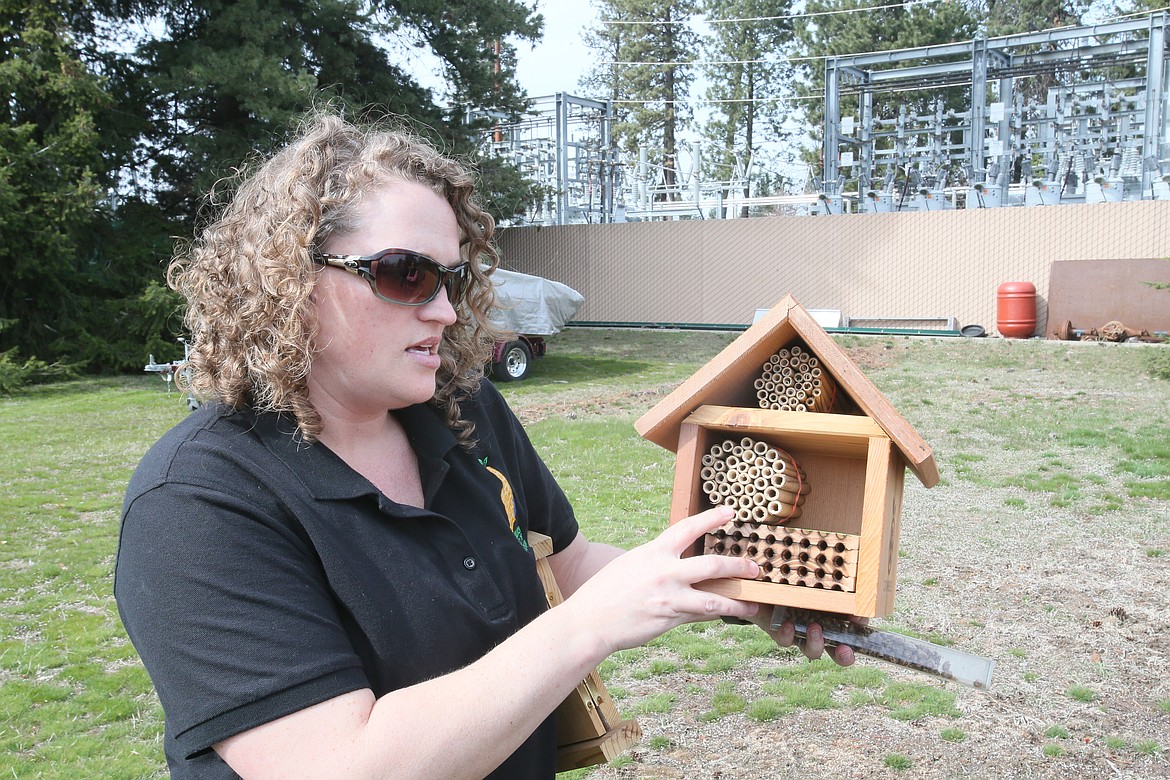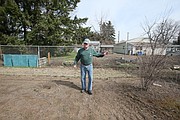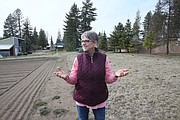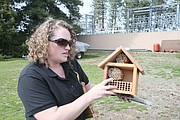Land of promise
COEUR d’ALENE — They can tell you about the birds, and the bees, and the flowers, and the trees and the moon up above.
And a thing called love — for their community and the pollinators that keep North Idaho healthy and beautiful.
"We wanted to do something for the community more than anything," Bill Kaufman said Friday.
"This is the easiest way to help the community. Throw some wildflowers out there," he said. "Without the pollination, without the bees, nothing grows."
Bill and his bride of 47 years, Kathi, live in Bill's childhood home on Howard Street in Coeur d'Alene. His family moved to that spot in 1959.
"We lived in a little trailer house right here, the circle of the driveway, while we built that house," Bill said. "It was finished in '61."
Beyond the house is just less than one-third of an acre of land that had once been filled with gardens and alfalfa fields. For several years, Bill would take his tractor and go over the area to keep the weeds down.
When a neighbor became involved in beekeeping, the Kaufmans did too. Through their work with the University of Idaho Extension Master Gardener program, they realized they needed food and nectar sources for those bees.
And they knew just where to grow them.
Idaho Master Gardener coordinator Kara Carleton said a yard like the Kaufmans' is "a sliver of the larger ecosystem and we're all part of it."
"If we don't start exposing ourselves to all sorts of slivers and pieces and parts of this large ecosystem, which humans are a small part of, then we're missing a huge piece in how this all weaves together," she said.
Pollinators are critical for not just humans, but fish and other wild game as well as fruit-bearing trees and bushes.
"They rely on these insects," Carleton said. "Honeybees are great, native bees are great, but if we don't have enough forage for them, they don't have their needs met and they're not going to stay in this part of the ecosystem."
"All of this supports everything," Kathi said. "It's a chain. Hobbyist beekeepers really need to kick it up a notch."
The Kaufmans have spread a special Master Gardener blend of deer-resistant white yarrow, bachelor button, foxglove, larkspur, lupine and more to attract and nourish pollinators. Trees surround the property and attract woodland creatures as well as pollinators.
"I've had several developers want to buy this back half of my property," Bill said. "I could build a nice big house back here and make another income or whatever, but I think I'd rather just play with this and make it available to the bees and everybody. It's our own little piece of heaven."
The UI Master Gardener program has numerous free services and resources to help people in Kootenai and Shoshone counties with gardening, insect identification, plant identification, disease, how to grow something new and anything garden related.
The "Ask a Master Gardener" plant clinic recently moved to a new location at the UI Research Park at 958 Lochsa St., Post Falls. Walk-ins are welcome 9 a.m. to 3 p.m. Tuesdays and Thursdays through Sept. 30.
Info: www.uidaho.edu/Kootenai/Garden

